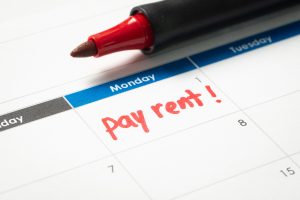A growing number of individuals are seeking to improve their understanding of personal finance. The rise in demand for accessible financial education has paved the way for a wealth of resources, notably in the form of books dedicated to personal finance. This article highlights some of the best personal finance books for beginners, emphasizing their potential to empower readers with essential financial knowledge.
The Case for Financial Literacy
The importance of financial literacy cannot be overstated. According to a recent survey by the National Endowment for Financial Education, nearly two-thirds of Americans do not have a basic understanding of key financial concepts. This lack of knowledge can lead to poor financial decisions, resulting in long-term economic consequences. Therefore, reading personal finance books can be a pivotal step toward achieving financial competence and independence.
Top Personal Finance Books for Beginners
Among the myriad of books available, several stand out for their comprehensive coverage of essential financial topics and their ability to engage the reader. Below are some of the most recommended titles in the realm of personal finance.
“The Total Money Makeover” by Dave Ramsey offers a straightforward approach to debt reduction and budgeting. Ramsey’s no-nonsense advice has helped millions adopt better financial habits, emphasizing the need for discipline and a proactive attitude towards savings.
“Rich Dad Poor Dad” by Robert Kiyosaki provides a unique perspective on wealth-building by contrasting the financial philosophies of Kiyosaki’s two father figures. This book encourages readers to think differently about money and highlights the importance of financial education and investment.
“The Simple Path to Wealth” by JL Collins is another highly praised resource that demystifies investing for beginners. Collins’ straightforward writing style, combined with actionable advice on retirement planning and stock market investing, has resonated with a wide audience.
“You Are a Badass at Making Money” by Jen Sincero encourages readers to embrace their financial potential. With a blend of motivational content and practical tips, Sincero’s book aims to change the reader’s mindset about money, making it attractive and achievable.
Market Impact of Financial Literacy
The rising popularity of personal finance books reflects a broader trend in society aimed at improving financial literacy. This shift could significantly impact consumer behavior, as informed individuals are more likely to make sound financial decisions. According to a report by the Global Financial Literacy Excellence Center, improving financial literacy could lead to better investment in personal assets and a reduction in debt levels across the population.
Expert Opinion
Financial experts agree on the importance of personal finance education. “Understanding the basics of personal finance can lead to better financial health,” says Dr. Annamaria Lusardi, a prominent economist specializing in financial literacy. “The books available today offer valuable insights that can change lives.” Many financial educators advocate for reading these foundational texts as a stepping stone towards a more comprehensive understanding of personal finance.
What’s Next for Financial Education?
Looking forward, the demand for personal finance books is expected to grow alongside increasing interest in financial literacy. With the proliferation of digital content, audiobooks, and interactive online courses, prospective readers have access to even more resources than before. Additionally, social media platforms are amplifying conversations around finance, further enhancing public engagement with these critical topics.
Moreover, as economic conditions continue to evolve, personal finance literature is likely to adapt, addressing contemporary issues such as the gig economy, student debt, and investment strategies suitable for a digital-first world. This evolution will help ensure that individuals are equipped to navigate the complexities of modern finance.
In conclusion, the best personal finance books for beginners not only provide essential knowledge and strategies for managing finances but also inspire a proactive approach to financial health. As more individuals seek to educate themselves on these vital topics, the conversation around financial literacy will continue to expand, promising a more financially savvy future.








